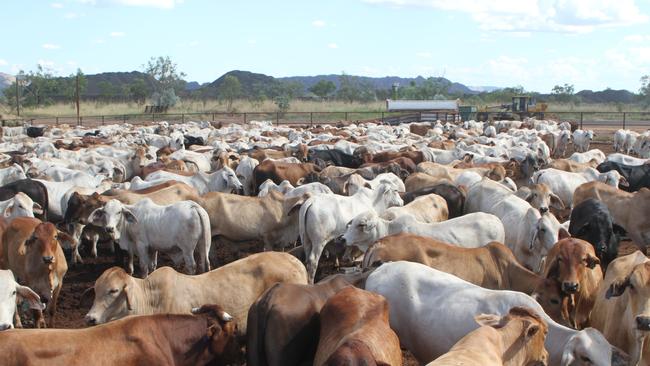Climate change and red meat are not incompatible, scientists say
An international scientific journal has rebuked claims that the livestock industry is incompatible with combating climate change and that human diets should restrict red meat consumption.

A special issue of the international scientific journal Animal Frontiers has rebuked claims that the livestock industry is incompatible with combating climate change and that human diets should restrict red meat consumption.
The peer-reviewed journal, published on Saturday, features nine articles from 36 co-authors from scientific organisations around the world, including Australia researchers Rod Polkinghorne, Neil Mann and Paul Wood.
Scientists examined the impact and importance of meat for nutrition, environmental sustainability and economic affordability, as well as ethical considerations about its consumption.

Among the findings, after reviewing more than 1000 scientific papers, was that the impact of livestock farming on the environment was poorly understood and oversimplified.
The review demonstrated that Homo sapiens evolved to be “persistent and frequent meat eaters”.
“Claims for further meat restriction below the current intake levels are mostly made based on associative correlations obtained from some observational studies, which suffer from potential bias and residual confounding,” one paper said.
The scientists also found that human-managed livestock systems were necessary to reach a level of environmental sustainability and for food security in developing nations.
“A purely plant-based diet is not feasible for all, given constraints on arable land, and the economic and environmental costs of importing foods into such regions would introduce or exacerbate food security and access issues,” the researchers concluded.
Animal Frontiers is the official journal of the American Society of Animal Science, the Canadian Society of Animal Science, the European Federation of Animal Science and the American Meat Science Association.
Dr Polkinghorne said the Animal Frontiers papers addressed the anti-meat rhetoric evident in some developed countries, including Australia, and a tendency from some governments and organisations to develop policy based on ideology, not science.
“It is really strong science; this is not opinion, it’s the best of the evidence,” Dr Polkinghorne said.
“You would hope policy in particular should be based on really strong evidence, not on ideology.”
The journal’s authors are among 1000 signatories to a declaration signed in Dublin last year warning that livestock production was important to society and should not be undermined based on ideology.




To join the conversation, please log in. Don't have an account? Register
Join the conversation, you are commenting as Logout